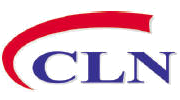Mortgage or RRSP?
- Details
- Created: Friday, 01 October 2004 18:18
- Written by Tom Lipp
What is the classic financial planning question? Most would reply, “Should I pay down my mortgage or should I invest in my RRSP (Registered Retirement Savings Plan)?” But is that really the most important question? Are there only two alternatives?
The issue is not should I pay down my mortgage or invest more in my RRSP, but seeing that I have some extra funds, what does God want me to do with this excess?This dilemma reminds me of a story that my accounting professor, L.S. Rosen, told me many years ago at York University in Toronto. Two men formed a financial partnership and opened up a new hardware store. On the fourth day of their first week, a customer paid for an item costing $4.75 cents with a twenty dollar bill. The cashier thoughtlessly gave the customer $5.25, change for a ten dollar bill. The customer said thank you and walked out of the store before the man at the till even realized his error. Suddenly one of the store owners faced his first major ethical test. Should he split this windfall profit with his partner or keep it all himself? Alas, what ever happened to the fear of God in our business dealings?
The same principle applies to personal financial planning questions. The issue is not should I pay down my mortgage or invest more in my RRSP, but seeing that I have some extra funds, what does God want me to do with this excess? What is the best alternative for these funds? This includes both of the aforementioned, but also encompasses all of the following: Giving it to the poor. Buying a form of insurance. Starting a charitable trust. Eliminating other debt. Holding a thanksgiving celebration! Assisting a needy family member. Supporting a missionary. The list goes on. The classic question should be: What does God want me to do with this excess? What is right in the eyes of God?
Now I deliberately avoided the first question, not because I don’t intend to answer it, but to point out that it is a leading, closed-end question which foolishly limits our options. If we assume that we have only the mortgage and the RRSP as alternatives then we need to remember the following.
If the mortgage is in its early years of amortization, then any extra payments produce more financial benefits than if it is near the end of its amortization schedule. If we already have significant RRSP holdings, then we won’t gain much more flexibility by adding extra. If we have no other tax reduction techniques, then the RRSP contribution will result in an immediate tax refund. If the mortgage rate is lower than the guaranteed return of the RRSP, then it makes more sense to add to the RRSP. If we invest in our RRSP and receive a tax refund, then we could apply the tax refund against our mortgage and thereby cover both options. If our mortgaged home is too large for our needs then maybe we should downsize rather than having excess investment in real estate. These guidelines apply to everyone, but each person has a unique mix of circumstances.
Generally speaking, as I read the Scriptures, I see more instruction to be debt-free than to have a larger nest-egg stored up for the future. That reveals my bias. Beware of financial planners who seek to minimize your non-financial assets (i.e. those things you hold clear title to) since they are really limiting your personal freedom. If our financial system collapsed, then you would be ruined. Financial freedom is a goal worth pursuing. Could these words of Jesus in John 8:36 be applied to the financial realm? “If the Son shall make you free, you shall be free indeed.”. As written in other passages of Scripture, the best example being Matthew 6: 19-21, it seems to me that Jesus desires His followers to be free not only from the penalty and power of sin, but to be unencumbered by material treasures here on planet earth.



